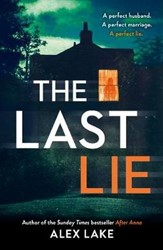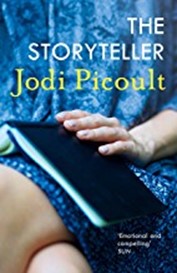 I had just finished reading Jodi Picoult’s The Storyteller. This book would be completely different. Or so I thought. Until the ending, then it was a case of Déjà vu. Woman metes out revenge. Woman is empowered. And a moral question. Is vengeance to be applauded in a woman, where it would not be so in a man?
I had just finished reading Jodi Picoult’s The Storyteller. This book would be completely different. Or so I thought. Until the ending, then it was a case of Déjà vu. Woman metes out revenge. Woman is empowered. And a moral question. Is vengeance to be applauded in a woman, where it would not be so in a man?
Dial M for Murder and the marriage of Tony and Margot. Hmm. Similar premise, husband Tony, funded by the wealth of his wife, Margot, wishes to dispose of Margot and divorce is not an option. Different means of achieving end. But in the intervening years, there has been a dramatic shift in the agency of women. Margot is the damsel in distress and needs to be rescued. But in the Last Lie, Claire, a woman of wealth is married to Alfie, who wishes to dispose of wife and keep her wealth. But Claire, unlike Margot, does not need to be rescued. She untangles Alfie’s evil and in return, plans to kill Alfie. It is the wicked husband who needs to be rescued.
The book is in two parts. Part 1: Alfie is in the ascendancy and it is a psychological thriller – will Claire escape, will Claire be saved. Part 2. Claire’s story. Claire rescues herself. No knight in shining armour required. All great stuff.
Or is it? In the end I was left wondering whether these two protagonists actually deserved each other. Both were self-absorbed, oblivious to the other, both see their spouse as a means to an end. Claire wins. Alfie is imprisoned. And again, moral questions left hanging, as empowerment is handed to the female.
 I enjoy reading Jodi Picoult’s books, for here is an author who understands that human beings are not two dimensional, simple beings but multi-dimensional, complex beings, capable of good and bad, love and hate, fear and courage. The Storyteller was no exception to this and is a story that will haunt me for a long time. But I found the ending disturbing, but not surprising. Yes, the Jodi Picoult twist was there, although by halfway through the book, I had wondered about the identity of Josef Weber, the elderly German teacher who had befriended Sage Singer, a young woman in her twenties grappling with grief for her mother and disfigurement. Twisting through the narrative was a gothic horror story that would have given Mary Shelly a run for her money. A story of an upior, a vampire, or to be more accurate, two brothers who were vampires, monsters in the world and a young woman, who is a baker, Ania. And running behind the story is the story of Minka, surviving against the odds, a survivor of the holocaust. It is also a story of two brothers, Reiner and Franz who are absorbed by the Nazi machine and become SS officers assigned to Aushwitz.
I enjoy reading Jodi Picoult’s books, for here is an author who understands that human beings are not two dimensional, simple beings but multi-dimensional, complex beings, capable of good and bad, love and hate, fear and courage. The Storyteller was no exception to this and is a story that will haunt me for a long time. But I found the ending disturbing, but not surprising. Yes, the Jodi Picoult twist was there, although by halfway through the book, I had wondered about the identity of Josef Weber, the elderly German teacher who had befriended Sage Singer, a young woman in her twenties grappling with grief for her mother and disfigurement. Twisting through the narrative was a gothic horror story that would have given Mary Shelly a run for her money. A story of an upior, a vampire, or to be more accurate, two brothers who were vampires, monsters in the world and a young woman, who is a baker, Ania. And running behind the story is the story of Minka, surviving against the odds, a survivor of the holocaust. It is also a story of two brothers, Reiner and Franz who are absorbed by the Nazi machine and become SS officers assigned to Aushwitz.